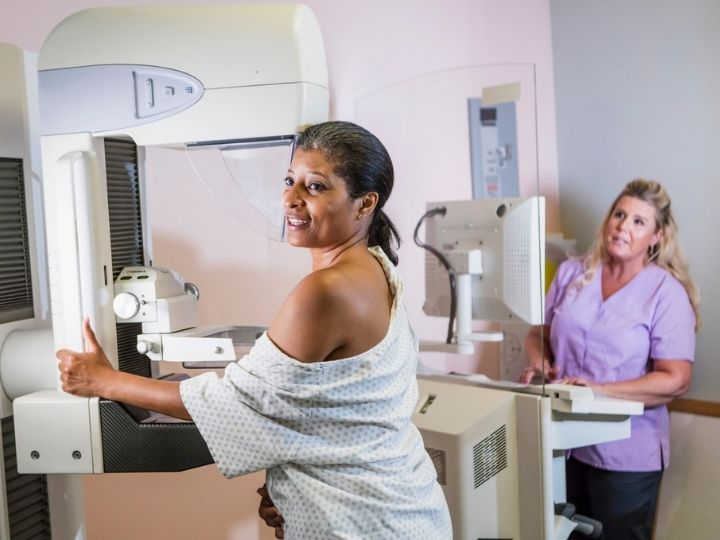Identifying Therapeutic Targets for Aggressive HR-positive Breast Cancer
UH Researcher Creating Strategy to Prevent Metastatic Progression
 Approximately 40% of HR-positive patients are unresponsive to standard hormone/endocrine therapy. Photo courtesy: GettyImages
Approximately 40% of HR-positive patients are unresponsive to standard hormone/endocrine therapy. Photo courtesy: GettyImages
University of Houston assistant professor of biology and biochemistry Tasneem Bawa-Khalfe has received a $1.8 million grant from the National Cancer Institute to design a therapeutic strategy to prevent metastatic progression of advanced drug-resistant HR-positive (hormone-receptor positive) breast cancers.
 Assistant professor of biology and biochemistry Tasneem Bawa-Khalfe has received a $1.8 million grant from the National Cancer Institute to design a therapeutic strategy to prevent metastatic progression of advanced drug-resistant HR-positive (hormone-receptor positive) breast cancers.
Assistant professor of biology and biochemistry Tasneem Bawa-Khalfe has received a $1.8 million grant from the National Cancer Institute to design a therapeutic strategy to prevent metastatic progression of advanced drug-resistant HR-positive (hormone-receptor positive) breast cancers.
A breast cancer diagnosis is considered HR-positive (the most commonly diagnosed type) if the cancer cells receive signals from estrogen and progesterone hormones and their corresponding receptors to promote growth. Unfortunately, 40% of HR-positive patients are unresponsive to standard hormone/endocrine therapy (ET).
Women resistant to conventional ET treatment experience higher rates of cancer relapse, incurable metastatic disease and death. Unlike other less common breast cancer types, few targeted therapeutic options are available for women with HR-positive breast cancer insensitive to ET.
One avenue recently opened to study are androgen receptors (AR), proteins responsive to male sex hormones like testosterone. Recent reports highlight that breast tumors can become reliant on AR for tumor growth and metastasis of the breast cancer cells to secondary sites in the body.
That’s why anti-androgens are emerging as promising therapy for many breast cancers, including HR-positive. Yet, increasing studies indicate that the AR work differently in women with HR-positive breast cancer that is resistant to hormone/endocrine therapy. In ET-insensitive cancers, anti-androgen medicines like Xtandi (enzalutamide) and other AR-targeting drugs do not effectively block the activity of the AR.
“Our recent publication shows that in breast cancer patients resistant to ET, androgen receptors are active even in the absence of androgen,” said Bawa-Khalfe. “The AR is always 'turned-on' or hyperactive. In this drug-insensitive cancer, we observe the accumulation of AR bound to a protein modifier called SUMO.”
This hyperactive modified AR programs the cancer cell to become more mobile or metastatic. Unlike conventional androgen-bound AR, SUMO-bound AR evades the inhibitory actions of AR-targeting drugs like Xtandi. This modified AR poses a new therapeutic challenge for the large population of women with this form of aggressive HR-positive breast cancer.
“The objective of our project is to design a therapeutic strategy to effectively target this hyperactive modified AR and prevent metastatic progression of ET-insensitive HR-positive breast cancer,” said Bawa-Khalfe. “Working with collaborators in the UH College of Pharmacy and Lester and Sue Smith Breast Cancer Center at Baylor College of Medicine, we have identified actionable/druggable targets and corresponding molecular pathways that support accumulation of the active AR. We expect to generate novel therapeutics and evaluate clinically relevant compounds to inhibit these targets and in turn prevent metastatic progression of advanced ET-resistant breast cancer.”
Because androgen receptors are relevant genomic-drivers in other systems, Bawa-Khalfe anticipates that the new therapies validated in this project will likely be applicable to other cancer types and diseases.
Publication: Tasneem Bawa-Khalfe, et al., Constitutively active androgen receptor supports the metastatic phenotype of endocrine-resistant hormone receptor-positive breast cancer, Cell Commun Signal (2023). DOI: 10.1186/s12964-020-00649-z
Original Story Source: University of Houston

 Alerts Sign-up
Alerts Sign-up